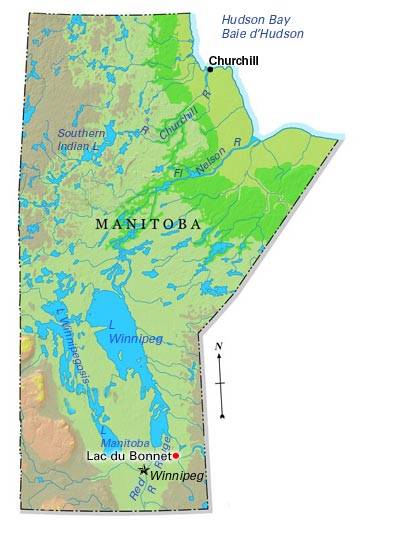Boissevain, Manitoba, incorporated as a village in 1899 and as a town in 1906, population 1572 (2011c), 1497 (2006c). The Town of Boissevain is located 73 km south of Brandon and 25 km north of the Canadian-American border. Originally known as Cherry Creek, the town was renamed after a prominent businessman and promoter of the Canadian Pacific Railway, Adolph Boissevain.
The first homesteaders took up land in the area in the late 1870s and early 1880s, and in 1885 the CPR reached the townsite. By the early 1890s Boissevain was a thriving community with hotels, stores, farm implement dealers and a lumber yard. Since then Boissevain has remained a commercial and service centre for the surrounding agricultural district.
Boissevain is the entrance to the International Peace Gardens. The Peace Gardens are located on the Canada-United States border at a site chosen because of its close proximity to the geographic centre of North America. Dedicated in 1932, many of the current features of the gardens date from the 1960s and 1970s, when the gardens underwent considerable redevelopment.
Boissevain is also home to the Canadian Turtle Derby (a statue of the town's mascot, "Tommy the Turtle," is a local landmark). Another attraction is the Moncur Gallery of Prehistory. The gallery contains one of Manitoba's best collections of archaeological materials, particularly materials relating to sites in Turtle Mountain, some of which may be 11 000 years old.

 Share on Facebook
Share on Facebook Share on X
Share on X Share by Email
Share by Email Share on Google Classroom
Share on Google Classroom


